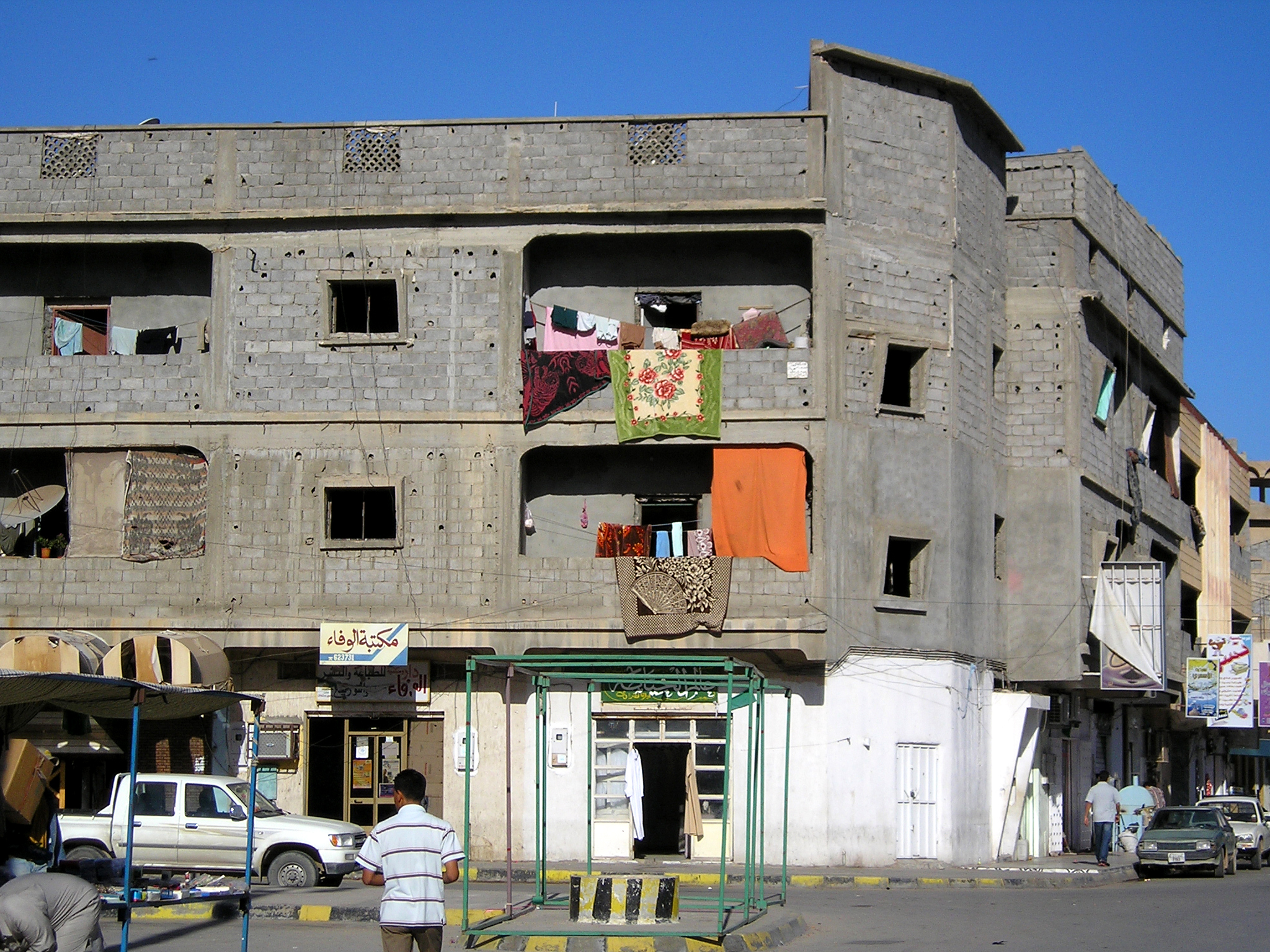Social situation Poverty and food insecurity
Street scene in Zliten, a town in north-west Libya
Libya is around five times the size of Germany. The Sahara Desert accounts for about 85 per cent of its land area, and the majority of its 7.4 million or so inhabitants therefore live along the Mediterranean coast. More than 80 per cent of the population live in urban areas.
On the latest United Nations Human Development Index (HDI), Libya is ranked 115th out of 193 states – putting it in second-last place among its North African neighbours, with only Morocco (which is ranked 120th) placed lower.
Basic services not adequately provided
Water pipes and electricity lines are in poor condition owing to lack of maintenance. Various militias also use disruptions in the drinking water and energy supply as a means of exercising political power. Public health facilities are unable to provide adequate care to the population. Parts of the municipal infrastructure were destroyed during the civil war. And so those are the areas where support from Germany and others is being focused.
The price of essential goods such as wheat, barley and maize has soared since 2021. Russia's attack on Ukraine and the limited access to foreign currency for imports are increasing inflationary pressure along with the risk of supply bottlenecks and food insecurity.
Severe lack of jobs in the private sector
The labour market data available for Libya is inadequate. Any that is available suggests that around 68 per cent of the workforce is employed in the service sector and around one quarter in industry. Estimates suggest that up to 89 per cent of the working population is employed in the public service or in state-owned companies.
Although the state’s role in providing employment and creating jobs is dwindling, the private sector in Libya remains underdeveloped. Any jobs that are created are primarily in the informal sector, for example, in agriculture, construction and retail. According to official figures, unemployment hit almost 19 per cent in 2024, and was as high as 50 per cent among youth and young adults.
As at: 18/08/2025
